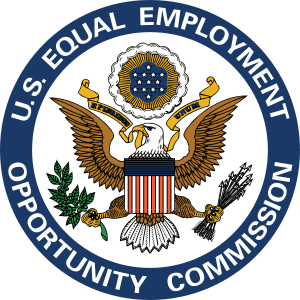|
Listen to this Article
|
For those who were unsure whether federal employment law extends to domestic violence victims, a new Q&A fact sheet from the Equal Employment Opportunity Commission (EEOC) may provide some clarity. Released in October, the brief publication explains that both Title VII and the Americans with Disabilities Act (ADA) “may apply to employment situations involving applicants and employees who experience domestic violence or dating violence, sexual assault, or stalking.”
According to the EEOC, this clarification is meant to protect domestic violence victims who – given the absence of an explicit protection for such victims in these statutes – are often “overlooked” when they experience discrimination or retaliation by their employers. The fact sheet goes on to provide a number of examples in which employees who are domestic violence victims can seek relief under Title VII and the ADA.

That said, the commission continues, “whether discrimination has actually occurred in a particular instance must be determined through an investigation of the facts alleged.”
Included among the EEOC’s examples are those in which employer discrimination or retaliation based on domestic violence ultimately triggers Title VII’s clear prohibition of disparate treatment based on sex. This includes an employer’s perpetuation of certain gender stereotypes, which in certain cases may comprise the basis for an employer’s decision to terminate a domestic violence victim. For example, the employer may cite the potential “drama battered women bring to the workplace” as a reason for termination.
The same protections against disparate treatment may also apply in the event that an employer denies unpaid leave sought by a victim of domestic violence. The EEOC uses the example of an employer granting unpaid leave to a male employee to appear in court after being assaulted while simultaneously denying a female domestic violence victim the same leave to prosecute her offender.
Domestic violence victims may also find themselves being subjected to sexual or gender-based harassment in the workplace, which Title VII also prohibits. For example, upon discovering that a female employee was subjected to domestic abuse, a male co-worker or supervisor may try to take advantage of her vulnerability by making sexual advances or stalking her.
Provisions within the Americans with Disabilities Act prohibiting the same discrimination based on real or perceived impairment may also offer some legal protection to domestic violence victims, notes the EEOC fact sheet. This includes basing hiring/firing decisions on a victim’s impairments or injuries, as well as the disclosure of such confidential medical information.
Though it may appear to some as a unilateral expansion of Title VII and the ADA, this effort by the EEOC should instead be understood as a more detailed explanation of legal protections that, in reality, existed since their original passage. However, by ensuring that potential victims are aware of their rights, such clarification aides in effecting the clear, longstanding purpose of these decades-old statutes.


